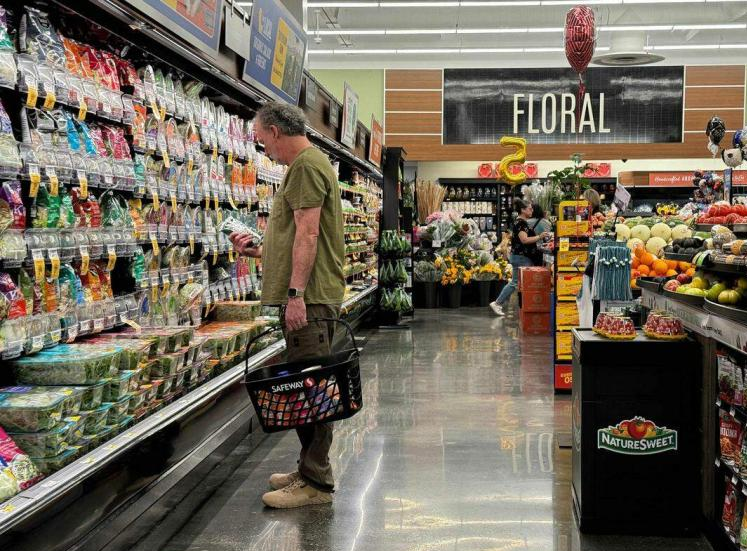
A survey released Wednesday by credit research firm TransUnion shows Americans' concerns about inflation and interest rates have risen to their highest level in two years.
Half of the respondents said interest rates ranked among their top three financial concerns, while 84% cited rising prices for groceries and other items like gasoline. Housing costs also weighed on survey participants. Still, solid employment and wage growth made most respondents optimistic about their financial situation in the coming year.
"Inflation is slowing down rapidly, but people are still finding that things are a lot more expensive than they were a few years ago," Charlie Wise, senior vice president at TransUnion, was quoted as saying in an interview.
"Consumers generally don't distinguish between inflation and prices," he said. So inflation remains a growing concern."
The U.S. Federal Reserve left its target range for the federal funds rate unchanged at 5.25 percent to 5.5 percent at the end of a two-day monetary policy meeting Wednesday. Inflation remains stubbornly above target. As a result, even consumers with good credit are finding themselves with bank loan rates that are more than double what they were a few years ago.
To make ends meet, nearly 60% of respondents said they had cut back on nonessential spending such as eating out, travel and entertainment in the past three months. About the same percentage plan to apply for a new credit card, the highest level of intent since the quarterly survey began. In fact, official data also show that credit card debt is rising.
The survey was conducted between April 29 and May 8, with TransUnion interviewing 3,000 people.

The South Korean political arena has once again been embroiled in a public controversy over a judicial investigation that has shaken the entire nation.
The South Korean political arena has once again been embroi…
On the morning of December 29th local time, the precious me…
According to the US media Barchart, recently, the fluctuati…
On December 29th, Mar-a-Lago in Florida, USA, witnessed a h…
SoftBank Group announced on Monday that it has agreed to ac…
Recently, the US State Department issued a visa ban, adding…